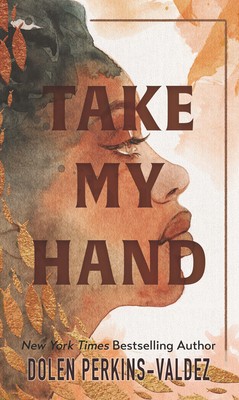Pretty Greene Leaves 🌿 reviewed Take My Hand by Dolen Perkins-Valdez
None
5 stars
Another unflinching look at the history of US crimes against black people (an other minorities) through the lens of historical fiction.
Sensitive and heartfelt, full of living breathing characters, and also unflinching in its portrayal of the forced/coerced sterilization campaigns in the 1970s. I was deeply touched by the protagonists efforts to improve the lives of others, and her relationship with the family she tried to help. It also paints a sensitive and realistic picture of the challenges of poverty, and highlights the deep violation of trust committed in the name of "medicine".
I work in the biomedical field, and I studied physics before that. Most of my friends are in scientific or medical professions. So I know from experience the beauty, value, and nuance of the scientific method, and the good and the bad of academia and medicine as a whole. It can do a lot of good, and …
Another unflinching look at the history of US crimes against black people (an other minorities) through the lens of historical fiction.
Sensitive and heartfelt, full of living breathing characters, and also unflinching in its portrayal of the forced/coerced sterilization campaigns in the 1970s. I was deeply touched by the protagonists efforts to improve the lives of others, and her relationship with the family she tried to help. It also paints a sensitive and realistic picture of the challenges of poverty, and highlights the deep violation of trust committed in the name of "medicine".
I work in the biomedical field, and I studied physics before that. Most of my friends are in scientific or medical professions. So I know from experience the beauty, value, and nuance of the scientific method, and the good and the bad of academia and medicine as a whole. It can do a lot of good, and it is heartbreaking to see so many in the public turn against it. However, books like Take My Hand shine a light on the skeletons in our collective closet. It expertly conveys how deep the betrayal of trust between a medical and scientific establishment and a community can cut.
Although a lot of the vitriol today comes, ironically, from those that were explicitly not part of these illicit experiments, there are real examples that taint the field and can't be entirely washed away. The Tuskegee Syphilis Study targeted black men, and the Relf sisters, on which the Williams sisters in Take My Hand are based, were a canary in the coal mine for a vast program of coerced sterilizations and contraceptive experiments on Latina and black women, and those with disabilities.
I think there is a warning to the academic and medical communities, in this story, that when we see something wrong, we must say something. Be the protagonist. Make a stink. Stop it as soon as possible because these things can only continue when good people are silent. Failure to stop this kind of thing before it starts can plant the seeds for the fields' destruction, even if it takes decades to grow to fruition.

